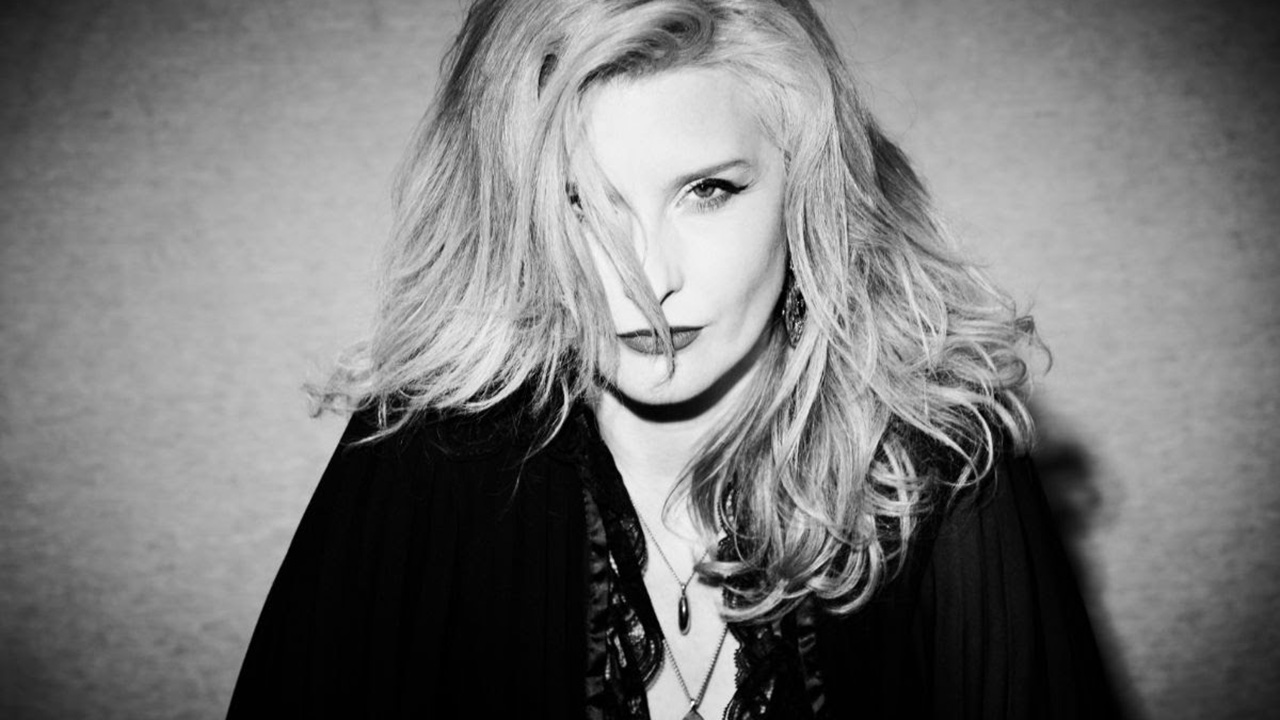
Doncaster-born Heather Findlay joined Mostly Autumn at the age of 19, remaining with them for 13 years before launching a solo career in 2010. She also worked with Jethro Tull, Fish, John Wetton, Uriah Heep and Ritchie Blackmore and been a guest for Ayreon and John Mitchell’s Lonely Robot project. In 2020 she spoke to Prog about her latest solo album Wild White Horses – made in partnership with Luke Morley, guitarist of the hard rockers Thunder.
You’d sung on Thunder’s 2017 album, Rip It Up, but how did you come to make a record with Luke Morley?
It all began when Benny [Matthews of Thunder] engineered and mixed Mostly Autumn’s Storms Over Still Water [in 2005]. Later on, Thunder were in Chapel Studios at the same time and there was a bit of a jam and the musical chemistry between Luke and I was pretty obvious.
After I left Mostly Autumn there was talk of working together but it was hard to make the schedules work. When I did The Theater Equation [a live album from Ayreon in 2016] I hit off with Irene Jansen and we discussed making a record that I knew would be harder and heavier than usual.
So I reached out to Luke, who is very comfortable in that style. Irene came over [from Holland] and we worked up a song that was like Led Zeppelin meets Heart, but then she became pregnant, so Luke and I continued alone.
And from there the direction changed again?
Yeah. Some of those ideas didn’t feel so natural and it became more of a solo album, with Luke acting as the producer.
Morley co-wrote seven of the 12 songs. Does he play guitar on the album? That solo on I Remember sounds very much like him.
That’s Luke on bass, keys and guitar throughout. Dave McCluskey from the Quireboys plays drums, Tim Oliver plays keys on Firefly, Ian Anderson adds flute to Winner and the pipes on I Remember are by Troy Donockley [of Nightwish].
How do you go about getting somebody of Ian Anderson’s stature involved? Just call him up?
Pretty much, yeah! I’m lucky enough that I know him well enough to do that. Bryan [Josh, Mostly Autumn guitarist] and I went out and did some shows with Tull a few years ago. We were their interval guests, which meant we got up and played during the interval of their show, and they came out and joined us. They chose the songs from our repertoire; Ian came out and did Yellow Time and the whole band joined us for Caught In A Fold.
How did you come to sing a duet with Thunder’s Danny Bowes on Just A Woman, and why a song specifically about trust in a relationship?
It had a kind of a smoky blues vibe, and it’s about the rise of the whole #MeToo thing. I was trying to present a real side to that whole male-female dynamic. Luke and I were very careful about how we approached that, and when he suggested Danny should be on it with me it seemed like a no-brainer.
Rockfield Studios in Monmouth is a wonderful place to record. Is the piano used by Freddie Mercury on Bohemian Rhapsody still there?
I got a really amazing vibe about Rockfield; you could almost feel the energy coming out of the walls, screaming to tell you its stories. And yeah, that same Bosendorfer piano is still there. I’m happy to say it’s all over my album.
Country and folk music are ingrained in this record, but it’s quite diverse.
Yeah, and that comes from my own taste. I’ve always been very open to different things. I love the whole spectrum of music.
The names Kate Bush and Stevie Nicks are writ large across it.
Of course. They’re my biggest influences and I adore them both. I don’t mind people reminding me of that, if you love something so much it’s bound to show in what you do. I don’t try to hide that.
All I really do is make music and don’t worry too much about categorisation. What I can tell you is that there’s a prog opus in me yet
It feels like quite a melancholy record.
Do you think so? I suppose I got some sadness out of my system, but it wasn’t intentional. I didn’t have a particularly happy childhood. My dad, bless him, was a super-heavy drinker and we lost him quite early on. Perhaps I was facing up to some stuff I’ve been carrying around.
Even now I still buy a new album and flick through it trying to find the weepy ballad, but for God’s sake, I was in Mostly Autumn for 13 years!
It’s not too difficult to imagine fans of that band enjoying Wild White Horses…
That’s good to know. Years ago I might have been really worried about how people might respond to an album of mine, but not so much anymore. My voice and my words are all over it, so it’s not a great stretch to imagine.
Will hardcore prog fans be a bit sniffy, perhaps?
Yeah, maybe so. I find myself well-supported by prog as a genre; Mostly Autumn were on the fringes of that along with folk and classic rock. The influences that made Mostly Autumn progressive were more Pink Floyd, The Beatles and Led Zeppelin than Genesis and Yes.
All I really do is make music and don’t worry too much about categorisation. What I can tell you is that there’s a prog opus in me yet, and this isn’t it but I think it’s gonna come. But it’s got to feel honest. Until then I’d rather work with what comes out of me authentically.







